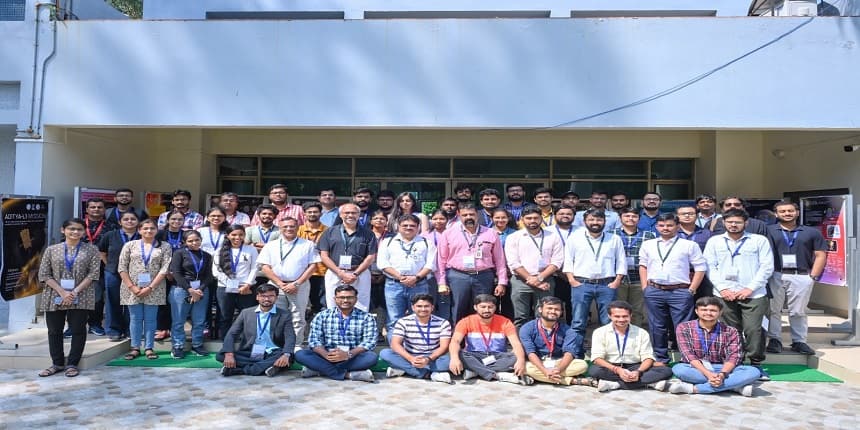IIT Kanpur organises workshop for 50 students on ISRO’s Aditya-L1 mission
Divyansh | October 5, 2023 | 04:01 PM IST | 2 mins read
Department of physics of IIT Kanpur organised the workshop to train final-year UG, MSc, and PhD students for utilising data gathered by Aditya-L1.

NEW DELHI: The Indian Institute of Technology Kanpur (IITK) organised the three-day fifth Aditya-L1 workshop at its campus. The workshop was jointly hosted by the department of physics, IIT Kanpur, and Aditya-L1 support cell at Aryabhatta Observational Science Research Institute (ARIES), Nainital.
IIT Kanpur is involved in the science objectives of the Aditya-L1 Mission of the Indian Space Research Organisation (ISRO). The Aditya-L1 is the first Indian satellite launched for the study of the Sun, its atmosphere, and its effects on Earth. The workshop aimed to train selected final-year undergraduate (UG), MSc, and PhD students in the utilisation of the data gathered by the satellite.
The workshop was inaugurated by Harshawardhan Wanare, head of the physics department and the Centre for Lasers and Photonics of IIT Kanpur. Gopal Hazra from the physics department welcomed the audience, and Vaibhav Pant of ARIES delivered a speech on the importance of the Aditya-L1 support cell for analysing the data.
S Krishna Prasad from ARIES presented an introduction to the basics of the Sun and its structure, followed by other experts delivering lectures on plasma processes inside the Sun, solar wind, its connection to laboratory plasma, and how to measure magnetic fields in space.
Eminent scientist Prof. Arnab Rai Choudhuri delivered an institute lecture on “The mysterious magnetic personality of our Sun,” which was attended by more than 300 people.
Also Read | IIT Kanpur launches 3 eMaster degrees in business, finance, public policy; GATE not required
The second day of the workshop focused on introducing the observational aspects of the Sun. It covered how scientists observe various phenomena on the Sun, such as solar flares, solar wind, solar coronal mass ejections, and solar energetic particles. Participants were given hands-on training in using the magnetohydrodynamic code PLUTO, a numerical code for computational astrophysics used to understand the origin of solar storms.
The third day of the workshop was dedicated to the Aditya-L1 mission, where participants, after gaining theoretical and observational understanding, were facilitated to appreciate the complexity of mission payloads.
The workshop included 50 students – 20 from IIt Kanpur and 30 from other institutes.
Follow us for the latest education news on colleges and universities, admission, courses, exams, research, education policies, study abroad and more..
To get in touch, write to us at news@careers360.com.